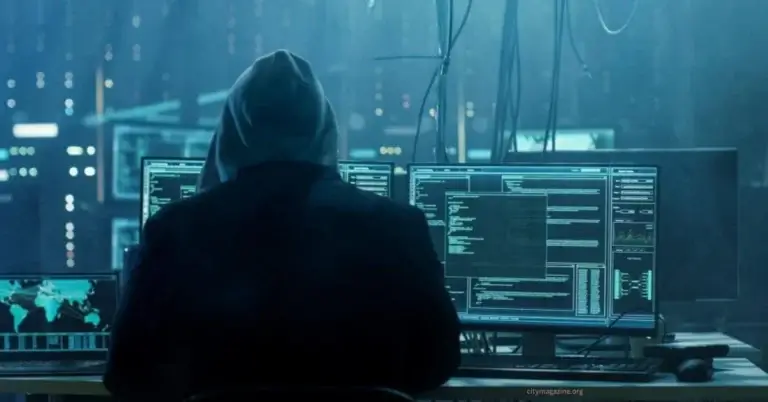Keeping your personal information protected from online threats is essential to offline security. By changing your devices and online accounts, you can ensure safe browsing, protect your online history, and secure your banking information. With the cybercrime rate increasing in Singapore, online security and privacy take priority. According to the Singapore Police Force, cybercrime cases increased by 38% from 2020 to 2021, with online frauds increasing privacy concerns by 81%.
Therefore, you must ensure online safety from unwanted attempts to access your data. Such data breaches can lead to the loss or leak of confidential information to third parties threatening your privacy. Let us see how we can achieve that.
1:Turn on Safe Browsing
Enact safe browsing features to turn off ads and crawlers that collect your personal information such as location, account information, browsing history, etc. It contains more than just your demographic information. The kind of websites you visit and your browsing patterns reveal more about you than you may realize.
Browser extensions like Adblock Plus and uBlock Origin block targeted ads along with the information they collect. You can also turn these off when visiting relatively safer sites. Privacy Badger is another feature that stops trackers and unnecessary ads.
The Opt-Out feature will help you manually retract personal information sharing on websites. Moreover, you can also disable interest-based ads on Twitter, Google, Facebook, Reddit, etc. It will help limit data sharing if not eliminate it.
2:Turn on Firewall
Firewalls protect your network from unauthorized access. An excellent option to safeguard your personal information is the Fortinet FortiGate firewall. It helps protect your local network from highly targeted attacks and is ideal for small to medium businesses.
Firewalls block unsolicited and unwanted network traffic that could harm your system and data. It filters incoming online traffic and detects malware, viruses, and tracking crawlers set up by hackers.
You can use your system’s built-in firewall and turn it on to ensure safe browsing, but a dedicated firewall is still a better option for added security. The purpose of a firewall is to build a barrier between your internal web traffic and external sources.
3:Use an Antivirus
Antivirus software protects your files from malicious software that swoops into your system without your knowledge. They can detect such malicious programs and help you to remove them before they can cause any damage.
If you use Windows 10, you should consider turning on Windows Defender. It is a built-in software with an antivirus option providing a second layer of protection, especially in the case of a shared computer. Malwarebytes works well with Windows Defender and offers added protection against viruses and malware.
Alternatively, MacBook users can use built-in protections in macOS and download software only from Apple Store. Malwarebytes is also available on MacBooks.
Additionally, avoid installing antivirus apps on your mobile phones and only download apps from the Play Store or Apple Store. Any third-party applications can contain malicious software that sweeps your phones without your knowledge and extracts private information.
4:Secure Your Accounts
Any online accounts that you own and run must remain secure. You should take the following steps to ensure your account safety:
- Create strong passwords
- Avoid using the same password for all accounts
- Frequently change your online banking passwords
- Avoid online transactions on unsecured sites
- Avoid saving passwords on shared and public networks
- Uncheck ‘remember password’ on unknown browsers
- Always log out when accessing your account on shared networks
Regularly check your account security by accessing settings from your browser. It would help you verify the strength of your stored passwords and let you know of any potentially compromised passwords.
Additionally, verify your email address security by visiting ‘Have I Been Pwned?‘
5:Be Cautious of Click Bait
You may come across multiple interesting links while browsing online. Avoid clicking on external source links from unverified sites, as these may be unsecured and unprotected. Visiting such non-verified sites can land you in deep waters with security concerns.
Any websites that look suspicious with non-credible sources are. Hackers set up such websites and entice internet users with clickbait to extract personal information such as credit/debit card information, banking information, and passwords.
It can look like a legitimate communication from a bank, utility company, Telecommunications Company, or any other corporate entity. Always remember that any legitimate corporation never asks for your personal information, including your account password.
It will assure data privacy with end-to-end encryption if it asks to enter such information. Moreover, if you receive an email from a non-standardized email address with an external link, it is probably spam and another clickbait way. Avoid opening such emails.
6:Avoid Sharing Personal Details on Social Media
Once you upload a personal photo or video on your social media profile, it can be impossible to take it down. Therefore, be cautious of what you post on Facebook, Instagram, Twitter, Snapchat, etc. However, these social media sites do offer protection and data security. Make sure to use them accordingly:
- Keep your profile private
- Create a close friends list to share posts only with your close friends
- Beware of screenshot notifications in case someone takes a screenshot of your snap on Snapchat
- Avoid adding people you do not know in real life to your friends list
- Keep your personal and professional networks separate
Following these tips would help assure the safety of your details on social media.
7:Use Free Wi-Fi with Caution
If you log into a free Wi-Fi connection, others can access your information and track your activity. Therefore, avoid entering passwords and your card details while connected to a public network.
You must wait until you get home or get access to a secure connection before making an online transaction or entering your card details.
Conclusion
Protecting your online activity saves you from malicious threats, data breaches, viruses, and malware. Therefore, you must take steps to ensure the safety of your online activity.
Turn on safe browsing features on your system. Turn on the firewall for safety from external threats. Use antivirus software. Secure your accounts with strong passwords. Be cautious of clickbait and avoid clicking on unknown links.
Avoid sharing personal and intimate details on social media, and keep your personal and professional networks separate. Additionally, use free Wi-Fi with caution while accessing secure information. The tips mentioned above would help assure online protection from all threats.




